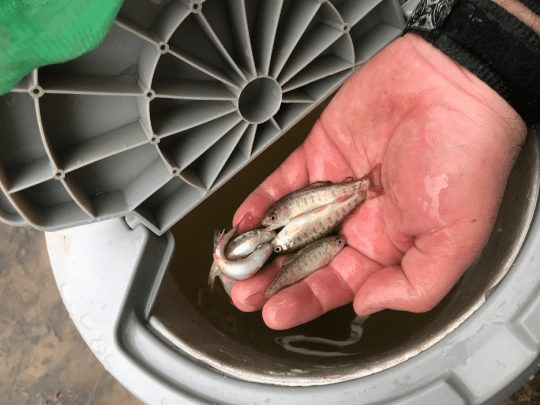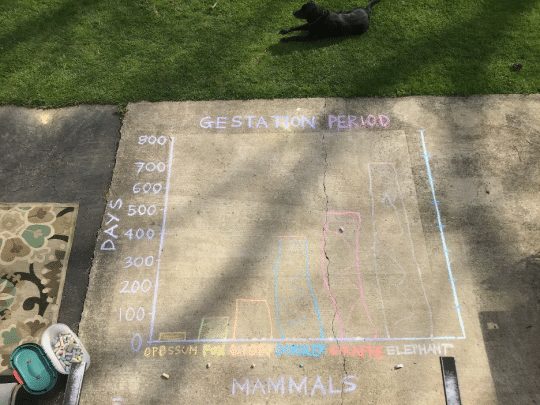In mid-March, like every teacher who suddenly found work and home life disrupted by Covid-19 related school closings, Christian Shane was concerned about his students. During the earliest days of sheltering restrictions, however, the science teacher from North Allegheny School District’s Ingomar Middle School was also worried about fish.
Christian and his seventh-grade students participate in Trout in the Classroom, an inter-disciplinary program made possible by a unique partnership between the Pennsylvania Council of Trout Unlimited and the Pennsylvania Fish and Boat Commission. A 55-gallon tank in Christian’s classroom held some 200 fingerling rainbow trout, fish raised from eggs since November, and destined for eventual release in designated stocked trout waters.
The release occurred far earlier than planned, and without any student participation. “When the school closed, teachers were instructed not to enter the building,” Christian explained, “but a custodian called that very first Saturday and said I’d better come get the fish.”

I learned of the rescue and release weeks afterward when I called Christian to ask if his home-based lessons involved any of the mammal skulls he borrowed from the Museum’s loan program in early March. The skulls were secure in his classroom, Christian reported, but the first-hand learning experiences the specimens provided for students before the school closure proved to be vitally important during later home bound instruction. “I’ve been trying to get the students outside. Whatever the size of their yard, I want them to notice things where they live that relate to what we’re covering in our remote lessons.”

According Christian, in a semester where teaching goals progressed from understanding the structures and processes of organisms to fuller comprehension of the roles of organisms in ecosystems, being able to make detailed observations of something as common as fern or a blooming violet was vitally important. “Students took two weeks to acclimate to the new conditions, but I’m confident they’ve learned a lot this spring.”
No doubt an innovative teacher had something to do with that progress.
Patrick McShea works in the Education and Visitor Experience department of Carnegie Museum of Natural History. Museum employees are encouraged to blog about their unique experiences and knowledge gained from working at the museum.
